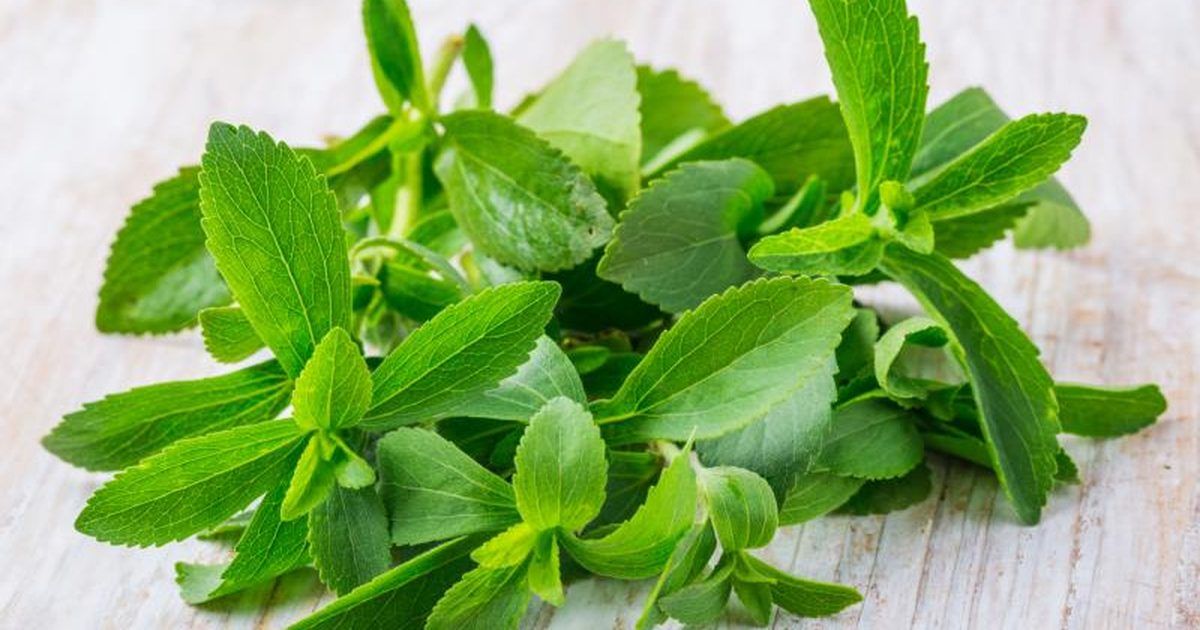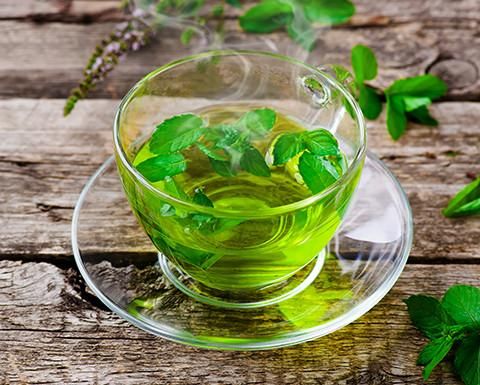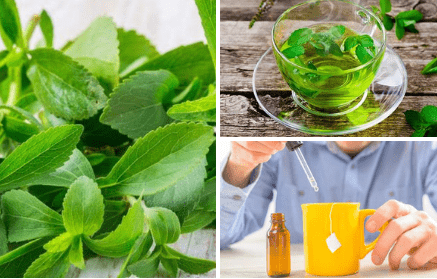Table of Contents
It helps with weight loss, regulates sugar levels and lowers blood pressure. And this is just a fraction of the miracles that Stevia can do with our health. Learn why Stevia should replace sugar and become part of your drinks and meals.
Crash Course for Healthy Nutrition: Stevia is a healthy, harmless, calorie-free sweetener
Stevia is a deciduous plant and 100% natural sweetener without any calorie content. Stevia extract is approximately 200 times sweeter than regular sugar, so you only need a small amount to sweeten your morning tea or healthy bread. The plant contains two basic sweet ingredients: steviol glycoside (a sweet but bitter ingredient of Stevia) and rebaudiozide A (the sweetest component of Stevia). [1] It also differs from regular refined sugar in that it does not endanger human health. On the contrary, scientific studies have shown that Stevia has a number of positive effects on our health.
History: Healthy effects of Stevia have been used by people thousands of years ago
More than 1500 years ago, people from Brazil and Paraguay used this non-caloric sweetener to taste teas, as a medicine or sweet treat. [2] In South American countries, Stevia has been used in traditional medicine to treat burns, stomach complaints and colic. An interesting fact is that it also served as a form of contraception. [3] The botanist Moisés Santiago Bertoni was the first to study and describe in more detail the effects of Stevia growing in the east of Paraguay. It was written in 1899. A little later, in 1931, a pair of chemists Bridel and Levielle managed to isolate steviol glycoside and rebaudiozide. The exact structure of these substances has left the bowels of chemical laboratories and was introduced to the world 24 years later. [4]
The benefits and health effects of Stevia
1. Regulates glucose levels
Although there are several types of Stevia, the ability to control optimal levels of blood sugars can be achieved by each one. Stevia is used as a sugar substitute, especially in diabetics, because its sweet component stevioside is not broken down or absorbed in the body. Stevia as a glucose stabilizer also promotes healthy pancreas function. [5] Stevioside increases insulin sensitivity, which helps reduce blood sugar. This makes Stevia a recommended dietary supplement in diabetics suffering from type 2 diabetes. [6]

2. Lowers blood pressure
Stevia lowers blood pressure in people suffering from hypertension. Hypertension is the most common heart disease and affects up to 1/4 of the population whose blood pressure is greater than 140 to 90 mmHg. The first results of the effects of Stevia on blood pressure appear only after one or two years. [7] If you have high blood pressure among your family members, you should not delay putting your Stevia in your diet for a long time. It is sufficient if you take one cup of tea of Stevia a day to maintain a healthy blood pressure level and reduce the risk of cardiovascular disease.
You might be interested in these products:
3. Effective remedy for dandruff and acne
Stevia contains a number of antibacterial, antifungal and anti-inflammatory agents that can cope with unpleasant rashes on the face or annoying hair dandruff. [8] If you have tried a number of guaranteed advice promoted online without a lasting effect in combating acne or dandruff, try Stevia. Its green leaves can breathe new life even with dry and broken hair.
4. Reduces wrinkles and skin lines
Retinoic acid prevents the breakdown of collagen and elastin, thereby regulating wrinkle formation. In addition, Stevia reduces sebum production, increasing the life of skin cells. [9] Although there is no guaranteed medicine to stay forever young, try mixing your face cream with a little Stevia extract. If you don’t see the result immediately, ask your mirror. The magic formula surely knows each of you.
5. Maintains healthy teeth and protects gums
Antibacterial and anti-inflammatory agents prevent the colonization of bacteria in the oral cavity, which contribute to the formation of gingivitis and oral plaque. [10] Add a few drops of Stevia in addition to toothbrush or try mouthwash or clean water mixed with Stevia.
6. Relieves digestive problems
Plant glycosides have a soothing effect on the irritated gastric mucosa, making it an active ingredient for treating digestive problems and heartburn. [6] While a cup of warm Stevia tea treats health problems related to digestive problems, cold Stevia tea will relieve you of heartburn.

7. Reduces the risk of breast cancer
Stevioside increases apoptosis (cell death, or DNA cell breakdown into tiny particles) and reduces certain stress pathways in the body that can cause cancer cell growth. [11] This is the first study to demonstrate the positive effects of stevioside in the prevention of breast cancer.
8. Helps with weight loss
Every year, sugar contains an increasing share not only abroad (in the American diet up to 16% of the total amount of calories) but also in our country. High sugar intake is reflected in body weight, but also has other adverse effects on our health. [12] As we mentioned in introduction, Stevia is a calorie-free sweetener, making it a healthy alternative to harmful sugars. Stevia reduces the intake of unhealthy sugars and calories, which over time may be reflected in your weight. Stevia not only solves obesity problems, but also its accompanying effects such as diabetes or metabolic syndrome. [13]
How to include Stevia to your diet?
Depending on the form we can consume Stevia, we know three categories:
1. Raw Stevia Leaves
It is the least processed Stevia type, so it contains the most beneficial substances. Dried leaves are then ground into small pieces. This ensures versatile use of Stevia, which can be used in powder or non-fat form to sweeten healthy foods (such as pancakes), drinks (tea, coffee or smoothie) or as a substitute for baking sugar. They are about 40 times sweeter than sugar, so you should not overdo it too much.
2. Stevia in the form of extract
A sweetener extracted from rebaudiozide, which is sweeter and less bitter compared to stevioside, may not give your body as many health benefits as stevioside sweetener. Stevia extract is about 200 times sweeter than regular sugar.
3. New natural sweeteners
The most processed form of Stevia, which undergoes several dozens of adjustments in the manufacturing process, each of which reduces the health effects of Stevia. “New natural sweeteners” are approximately 200 to 400 times sweeter than sugar.
How to dose Stevia?
The dosage of Stevia is quite different from that of regular sugar, and it is not at all true that two teaspoons of Stevia will taste as sweet as two teaspoons of sugar. To avoid overdosing Stevia in food or beverages, see the following conversion table or use this calculator.
| Sugar | Stevia Powder | Liquid Stevia | Stevia Extract |
|---|---|---|---|
| 1 teaspoon | 1/8 teaspoon | 5 drops (1 ml) | – |
| 2 teaspoon | 1/4 teaspoon | 10 drops (2 ml) | – |
| 1 tablespoon | 1/3 teaspoon | 15 drops (3 ml) | – |
| 1/2 cup | 1 tablespoon | 1 teaspoon (24 ml) | 1/4 teaspoon |
| 1 cup | 2 tablespon | 2 teaspoon (48 ml) | 1/3 teaspoon |
| 2 cups | 4 tablespoon | 4 teaspoon (96 ml) | 1/2 teaspoon |
Table: Conversion table for Stevia dosing [14]
Negative effects of Stevia
Although there are no proven negative effects of Stevia on our health, you can find some threats online such as reduced fertility proved in animals. These are scientific studies applied to animals receiving long-term Stevia extract in high doses. [15] [16] No research has shown the effect of Stevia on human hormones, so Stevia is an absolutely harmless plant with a positive effect on the human body.
If you throw sugar out of your daily diet and replace it with Stevia, you can prevent diabetes, obesity, cardiovascular disease and other health problems. There are many natural sweeteners containing Stevia on the market, and each of them can taste differently. When choosing, pay attention to their composition, because some manufacturers parasitize the name. The percentage of Stevia in their products does not have health, but rather entertaining effects.
If you liked the article, or think it might be helpful to your friends, support it by sharing.
[1] Abdullateef, R., A., Osman, M. Studies on effects of pruning on vegetative traits in Stevia rebaudiana Bertoni (Compositae). – https://www.ccsenet.org/journal/index.php/ijb/article/download/11721/9623
[2] Himanshu, M., Manish, S., Narendra, S., Darshana, M., a kol. Antidiabetic activity of medium-polar extract from the leaves of Stevia rebaudiana Bert. (Bertoni) on alloxan-induced diabetic rats. – https://www.ncbi.nlm.nih.gov/pmc/articles/PMC3103919/
[3] Cox, L. What Is Stevia? – https://www.livescience.com/39601-stevia-facts-safety.html
[4] Bridel, M., Lavielle, R. Sur le principe sucre des feuilles de kaa-he-e (stevia rebaundiana B).
[5] Goyal, S., K., Samsher, Goyal, R., K. Stevia (Stevia rebaudiana) a bio-sweetener: a review. – https://www.ncbi.nlm.nih.gov/pubmed/19961353
[6] Anton, S., D., Martin, C., K., Han, H., Coulon, S., Cefalu, W., T., Geiselman, P., Williamson, D., A.. Effects of stevia, aspartame, and sucrose on food intake, satiety, and postprandial glucose and insulin levels. – https://www.ncbi.nlm.nih.gov/pmc/articles/PMC2900484/
[7] Curi, R., Alvarez, M., Bazotte, R., B., Botion, L., M., Godoy, J., L., Bracht, A. Effect of Stevia rebaudiana on glucose tolerance in normal adult humans. – https://www.ncbi.nlm.nih.gov/pubmed/3651629
[8] Silva, G., a kol. Investigation of the tolerability of oral stevioside in Brazilian hyperlipidemic patients. – https://www.scielo.br/scielo.php?script=sci_arttext&pid=S1516-89132006000500007
[9] Soejarto, D., D., Kinghorn, A., D., Farnsworth, N., R. Potential sweetening agents of plant origin. III. Organoleptic evaluation of Stevia leaf herbarium samples for sweetness. – https://www.ncbi.nlm.nih.gov/pubmed/7153776
[10] Tadhani, M., B., Patel, V., H., Subhash, R. In vitro antioxidant activities of Stevia rebaudiana leaves and callus. – https://www.researchgate.net/publication/223156211_In_vitro_antioxidant_activities_of_Stevia_rebaudiana_leaves_and_callus
[11] Paul, S., Sengupta, S., Bandyopadhyay, T., K., Bhattacharyya, A. Stevioside induced ROS-mediated apoptosis through mitochondrial pathway in human breast cancer cell line MCF-7.– https://www.ncbi.nlm.nih.gov/pubmed/23061910
[12] U.S. Department of Agriculture. Dietary Guidelines for Americans. – https://health.gov/dietaryguidelines/dga2010/dietaryguidelines2010.pdf
[13] Megeji, N., W., Kumar, J., K., Singh, V., Kaul, V., K., Ahuja, P., S. Introducing Stevia rebaudiana, a natural zero-calorie sweetener.– https://tejas.serc.iisc.ernet.in/~currsci/mar102005/801.pdf
[14] SweetLeaf. Stevia Conversion Chart. – https://sweetleaf.com/stevia-recipes/stevia-conversion-chart/.https://sweetleaf.com/stevia-recipes/stevia-conversion-chart/
[15] Melis, M.,S. Effects of chronic administration of Stevia rebaudiana on fertility in rats. 1999. – https://www.ncbi.nlm.nih.gov/pubmed/10619379.
[16] Oliveira-Filho, R., M., Uehara, O., A., Minetti, C., A., Valle, L., B. Chronic administration of aqueous extract of Stevia rebaudiana (Bert.) Bertoni in rats: endocrine effects. 1989. – https://www.ncbi.nlm.nih.gov/pubmed/2785472.

